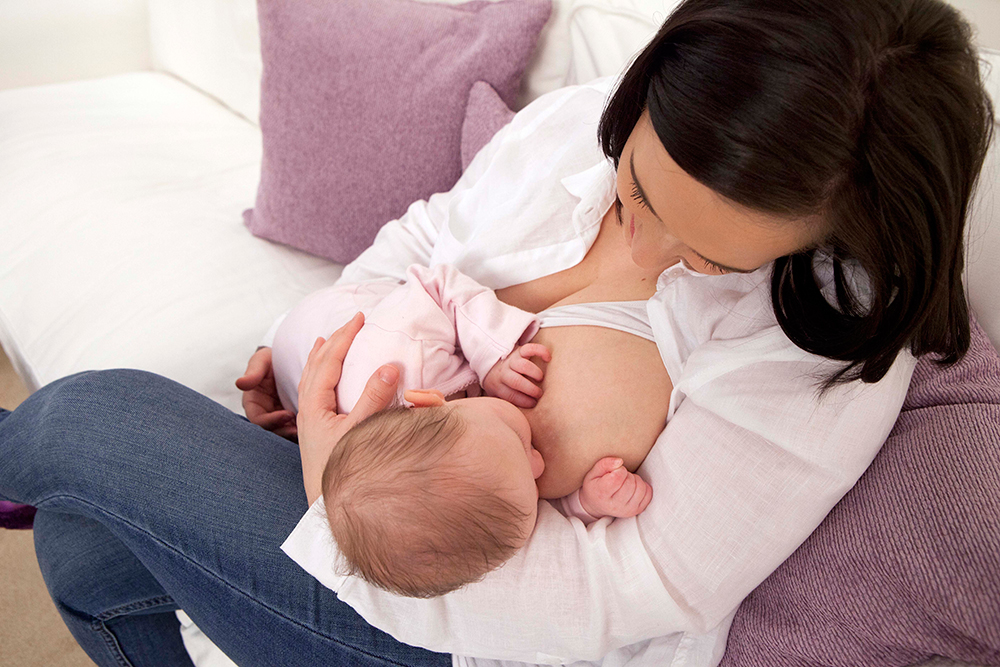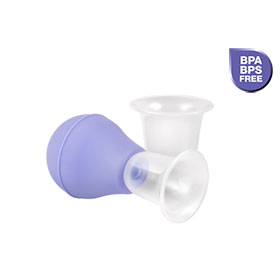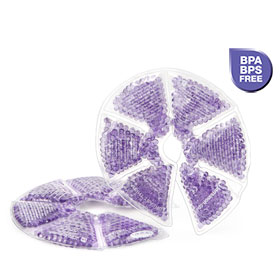Advice Articles
- Home
- Advice Articles
- Breastfeeding
- Breastfeeding Diet
Breastfeeding Diet

Eating well does not necessarily mean spending lots of time in the kitchen: many nutritious foods are great for snacking, or can be prepared very quickly. You may find it easier to ‘eat to hunger’, choosing foods that keep you feeling energetic!
Breastfeeding women can often feel thirsty, so make sure you drink enough fluids (water, milk and unsweetened fruit juice are good options) and always have a drink at hand when you settle down to feed your baby. Drink to satisfy your thirst, but don’t overdo it – there is no proven link between fluid intake and milk supply.
Breastfeeding women are more at risk of vitamin D deficiency. 90% of the body’s vitamin D is made in the skin with the help of sunlight. Your GP or health visitor can advise you on vitamin D supplements.
Although there are exceptions, most breastfeeding mothers find that they can eat what they like (in moderation, of course), including spicy foods, without an effect on their baby. However, you will want to avoid too much of some foods and types of drink:
Caffeine while breastfeeding
Too much caffeine while breastfeeding can keep your baby awake, or make him unusually fussy, so it is better to limit the amount of drinks containing caffeine (not only tea and coffee, but also cola and energy drinks) you have. Some cold and flu remedies contain caffeine, and chocolate also contains a substance (theobromine) that is very similar and can produce the same effects.
Oily fish while breastfeeding
Eating fish is good for you, but don’t have more than two portions of oily fish a week.
The Department of Health advises a limit on oily fish for women because it can contain low levels of pollutants that build up in the body. .
Alcohol while breastfeeding
Alcohol passes to breastfed babies in very small amounts and it is unlikely that having an occasional drink will harm your baby. However, it is sensible to drink very little (no more than one or two units once or twice a week) when you are breastfeeding.
If you intend to drink more than this on a special occasion, expressing breastmilk in advance is a good idea. If you have been drinking alcohol, never share a bed or sofa with your baby
Related Categories
You May Also Need
-
... View -

HPA® Lanolin Nipple Cream for Sore & Cracked Nipples
Sore nipples are very common during breastfeeding and can often be a result of the uncomfortable positioning... View -

LatchAssist™ Nipple Everter
When a baby cannot achieve a good latch, trying to breastfeed can be frustrating and upsetting for both... View -

Thera°Pearl® 3-in-1 Breast Therapy
Flexible and reusable, Thera°Pearl’s 3-in-1 Breast Therapy packs have soft covers that can be slipped... View
